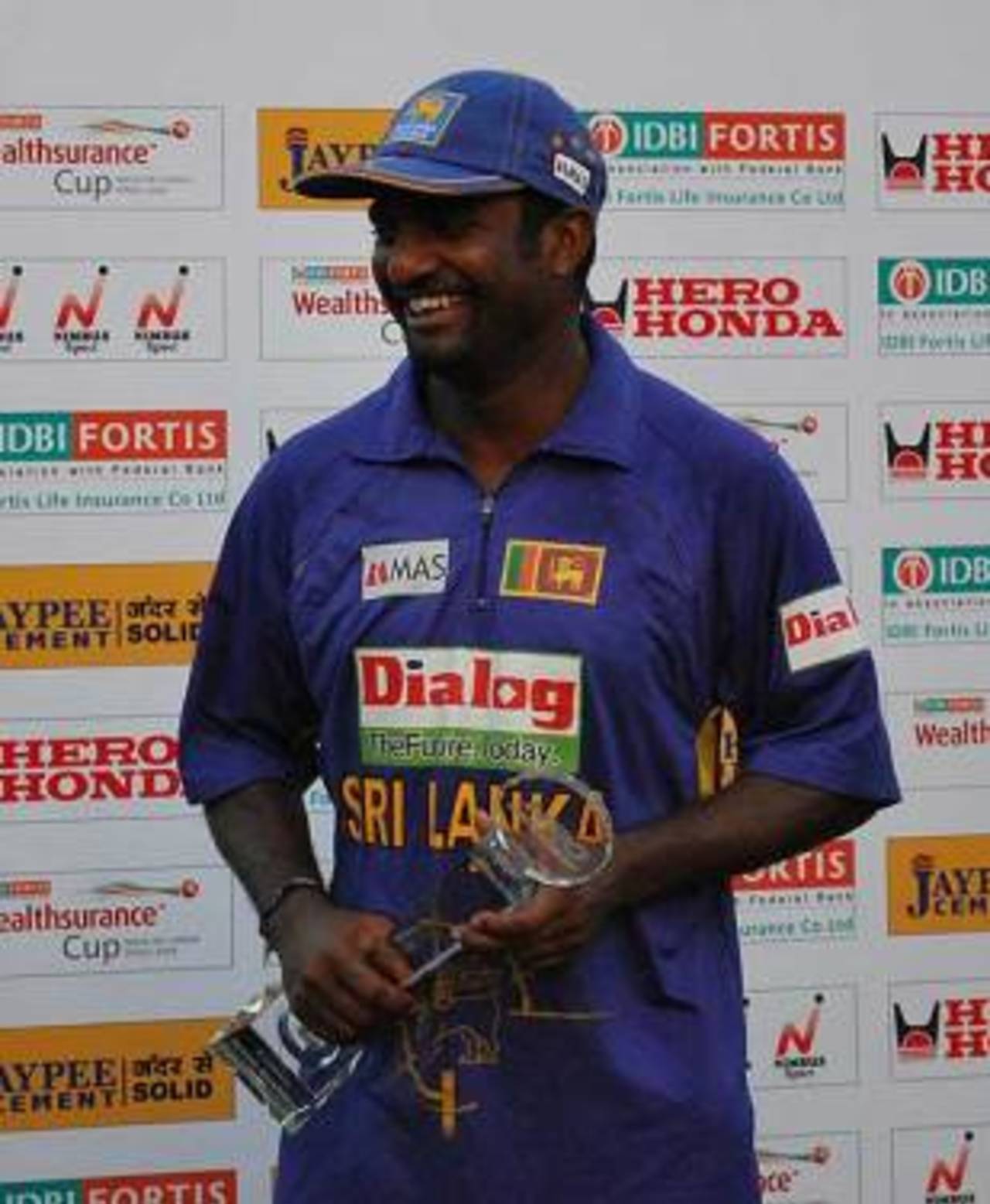Murali as emblem
Cricketers may not be politicians, but they can be more powerful than them as forces of unity
Tishani Doshi
May 19, 2009, 7:10 AM

A representative of an entire people • ESPNcricinfo Ltd
One of the most interesting experiences I had while helping Muttiah Muralitharan with his biography was a trip we made to Jaffna in November 2004. Murali was acting as an ambassador for the World Food Program, and together, with a convoy of UN officials, we surveyed schools, clinics and farms in the LTTE-held areas of northern Sri Lanka.
The trip was fascinating, not just because we had access to parts of the country that hardly anyone had, but also because it was made in that two-year golden period of the ceasefire; so we could move about without too much threat to our safety. The highlight for me was having lunch at the LTTE's jungle headquarters in Kilinochchi. It was possibly the most surreal lunch of my life. On one side of me sat spin king Murali, on the other, deputy head of the political wing of the LTTE, Sudhamaster. Throw in bow-tied waiters, life-size pictures of Velupillai Prabhakaran in the hallways, terrorists with business cards, a five-course meal, and chitchat of what cricket can do for politics, and the level of surrealism climbs a few notches.
I wrote about that experience for the Hindu here, and I thought about it yesterday when I heard that Prabhakaran had been shot down while trying to escape in an ambulance. The Sri Lankan government have produced photographs of numerous bodies of LTTE top brass, including Prabhakaran's son Charles Anthony, but none yet of Prabhakaran. Still, if we assume he is dead, it marks the end of an era in Sri Lankan politics, and the whole thing has me feeling very ambivalent.
I know the LTTE was a terrorist outfit of the most original and terrifying kind - suicide bombers, cyanide pills, child soldiers, the works, but on the other hand there were legitimate reasons for its formation; and while there's a sense of disbelief that nearly three decades of war in this country will finally come to a close, there's still the issue of the many hundreds and thousands of innocent civilians caught in the crossfire. It makes you wonder how things will move going forward.
Throughout that trip, I saw how people reacted to Murali. I can't describe it: it wasn't the mad, slathering hero-worship that I had seen in other places, it was as if he represented a real beacon of hope; that he were representative somehow of an entire people. Later I found out that people in the streets sang bailas about him, that he was considered the bridge for the country's problems: the ultimate solution to their national conflict - a lone Tamilian happily ensconced in a group of Sinhalese, pitching his worth, and then some. If the Sri Lankan cricket team could work as a unit with men of different backgrounds and religions in it, then why not the entire country?
Of course, this argument could apply to any number of cricketing nations. To India and Pakistan, who have their Hindu-Muslim issues, and to South Africa and Zimbabwe, who have their black-white issues. The thing is that cricket and politics aren't such strange bedfellows after all. Each has the potent ability to affect the other. For 21 years South Africa was banned from the international circuit because of its government's policy of apartheid. England still refuses to tour Zimbabwe for political reasons. Everyone refuses to tour Pakistan because of Talibanisation and terrorist attacks.
I know that it's dangerous to think of cricketers as politicians. They aren't. Their role isn't to be socially responsible or to lead their nations forward or to come up with inspiring speeches about brotherhood. But the fact is that in these fragmented times there are very few uniting forces available to us. Cricketers often find themselves in highly elevated positions because the people of their country look to them for hope and affirmation in ways in which they do not look to their politicians. When Sri Lanka won the World Cup in 1996, it did more for their country's sense of pride than any Norwegian international negotiation ever did. Suddenly they were visibly present on the map, and their people could unite in a shared passion. "When Sanath or Murali are on TV," one of my Sri Lankan friends told me, "The whole country stops its madness for a while."
Tishani Doshi is a writer and dancer based in Chennai